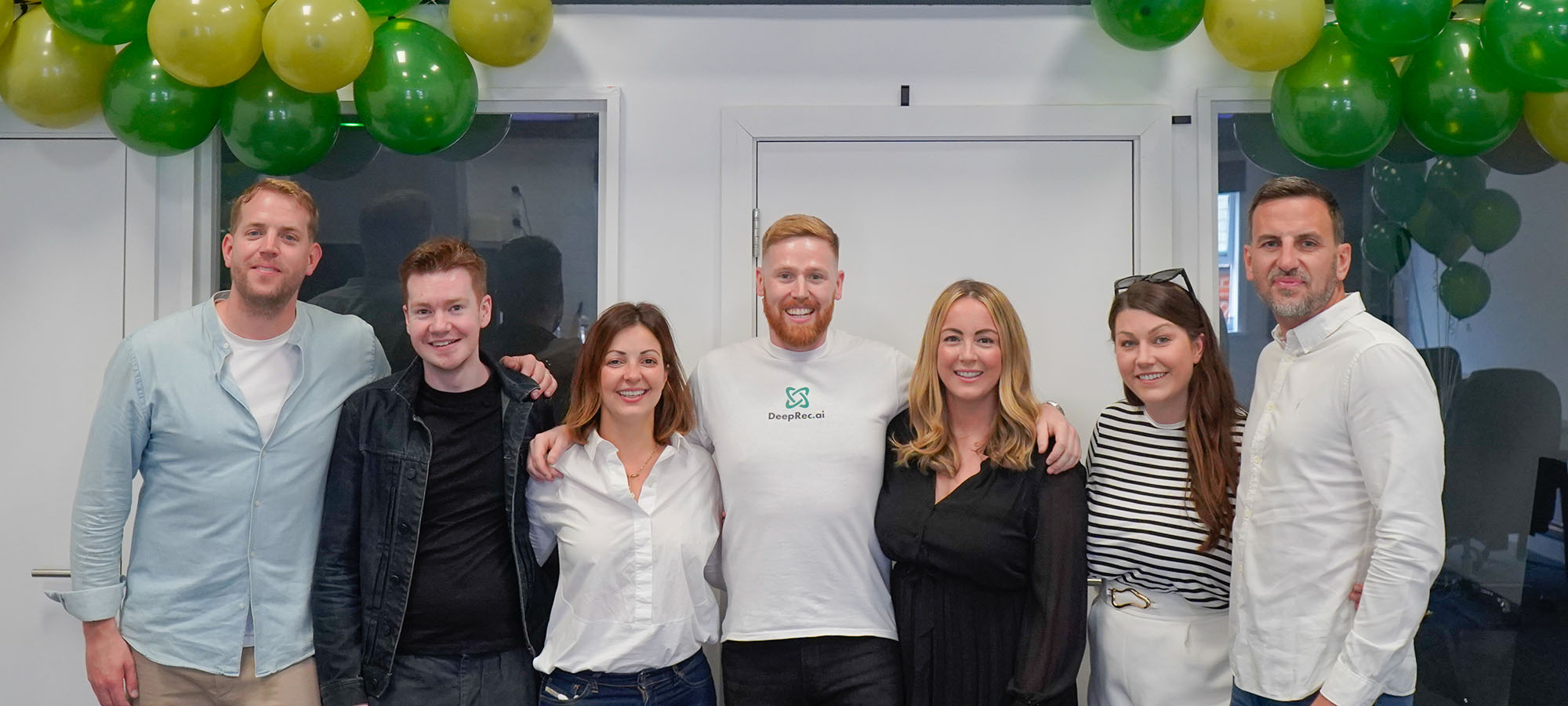A New Reality for Commercial Banking
Future-facing banks must move beyond transactional products to focus on growth mechanisms that enable customers to thrive. Evolving markets demand compliant, data-driven products that build trust and long-term profitability.
In today's commercial banking space, winning propositions often share common features:
Ecosystems - they offer an integrated suite of financial and non-financial services that help businesses evolve beyond core banking.
AI Enablement - they use AI-driven insights to guide strategic, operational, and financial choices with speed and accuracy.
Personalisation - they embed tailored financial solutions directly into customer workflows to meet specific business needs in real-time.
High-Tech, Human-Led - they combine seamless digital journeys with expert human advisors to deliver trust, guidance, and lasting relationships.
The Challenge
The SME segment is underserved in the UK; they face a £90 billion finance gap, with £65 billion unmet in productive lending, and £4-6 billion annual shortflows for loans under £100,000. Large banks like Barclays are moving quickly to close this gap.
AI and Automation are enabling banks to reduce their cost, while slow-moving traditional banks risk falling behind. Business customers want individualised products and experiences, expect fast onboarding, intuitive tools, cashflow insights and 24/7 support.
Banks can stand out and capture market value by using data and human expertise to drive better business decisions.
We spoke to over 120 business owners and banking advisors as part of an extensive market research project, and it revealed a sector under pressure. We uncovered six common pain points affecting the commercial banking industry:
SME Support Needs Are Episodic and Urgent
- SMEs don't want constant relationship management, but when faced with challenges (unexpected costs, delayed cash inflow), they need easy access to someone who knows their business. Standardised service models fall short here, as support is most valuable when it's contextual and time-sensitive.
Disillusionment with Traditional Banks is About Fit, Not Price
- Many SMEs feel their bank doesn't understand their business model, size, or sector, which leads to irrelevant offers and generic advice. This erodes trust and makes loyalty feel fragile. Some participants described feeling invisible or insulted.
Loaning Feel Risky and Unsupportive
- Owners avoid borrowing, not only due to interest rates, but because debt represents anxiety, oversight, and a loss of control. Emotional risk is as real as financial risk. Owners will delay draws or lean on informal networks to stay autonomous.
Invisible Working Capital Cycles Increase Financial Pressure
- Businesses face pressure to front-load costs (materials, customs duty, VAT) long before customer payment arrives, especially in manufacturing or B2b services.
Cash Flow Discipline Underpins Every Financial Decision
-
Owners manage cash flow with discipline, holding back withdrawals and building liquidity buffers rather than relying on formal planning. These habits stem from caution and experience with past volatility.
System Gaps Force Owners into Workarounds
- SMEs are slowed down by manual trackers, delayed self-payments, personal cards, and Excel to bridge systemic gaps. These are clues to unmet needs, not flaws in the user.
Our Solution
Every challenge points to a gap in product design. To combat this, we take a lean, low-risk approach to building new banking propositions, underpinned by the agility to adapt as customer and business needs evolve. Instead of long programmes that stall before delivery, we run short, phased sprints that validate ideas early and move quickly from concept to launch.
Our objective is to validate the proposition with a feasibility and desirability study, backed by a viable business case, before moving to the implementation stage. This means we:
Hypothesise
We'll develop a clear business proposition, backed wth analysis and research to de-risk your strategy.
-
Detailed market reports
-
Diagnosis of existing capabilities and platforms
-
Quantitative research with target segments to identify core behaviours and customer journeys
-
Alignment with business ambition and goals
Validate
We'll de-risk execution with rigorous proposition validation, refining it to ensure feasibility.
-
Rapid concept prototyping
-
Testing with customers, stakeholders and employees
-
An assessment of partners, third-party tools, and internal capabilities
Develop
We'll develop an implementation plan with a product backlog and core delivery team.
-
Development of a distinctive new business bank proposition
-
development of a new business case
-
shaping of a detailed product backlog with a viability assessment
-
Assembling the operational team for implementation
Implement
We'll build with clear prioritisation and phased delivery.
-
Delivery as per the roadmap
-
Marketing and growth plan
-
Ongoing customer and business validation, iteration, and releases
Why Choose Sorai for Product Discovery?
With our background and expertise, we partner with clients to shape market-leading SME banks and propositions. Our team brings experience from some of the world’s most innovative organisations, including Microsoft, McKinsey, Google, DAO, Tapioca, and JPMorgan Chase.
We move you seamlessly from strategy to implementation and capability build, combining the rigour of consulting with hands-on delivery. Unlike large consultancies, we offer deep domain expertise over generalist models, providing the same calibre of talent at a more sustainable cost.
If you’re looking to design the next generation of SME banking products, our team is ready to help. Let the team know what you’re looking for by filling out the form below, and we’ll get back to you as soon as possible.






